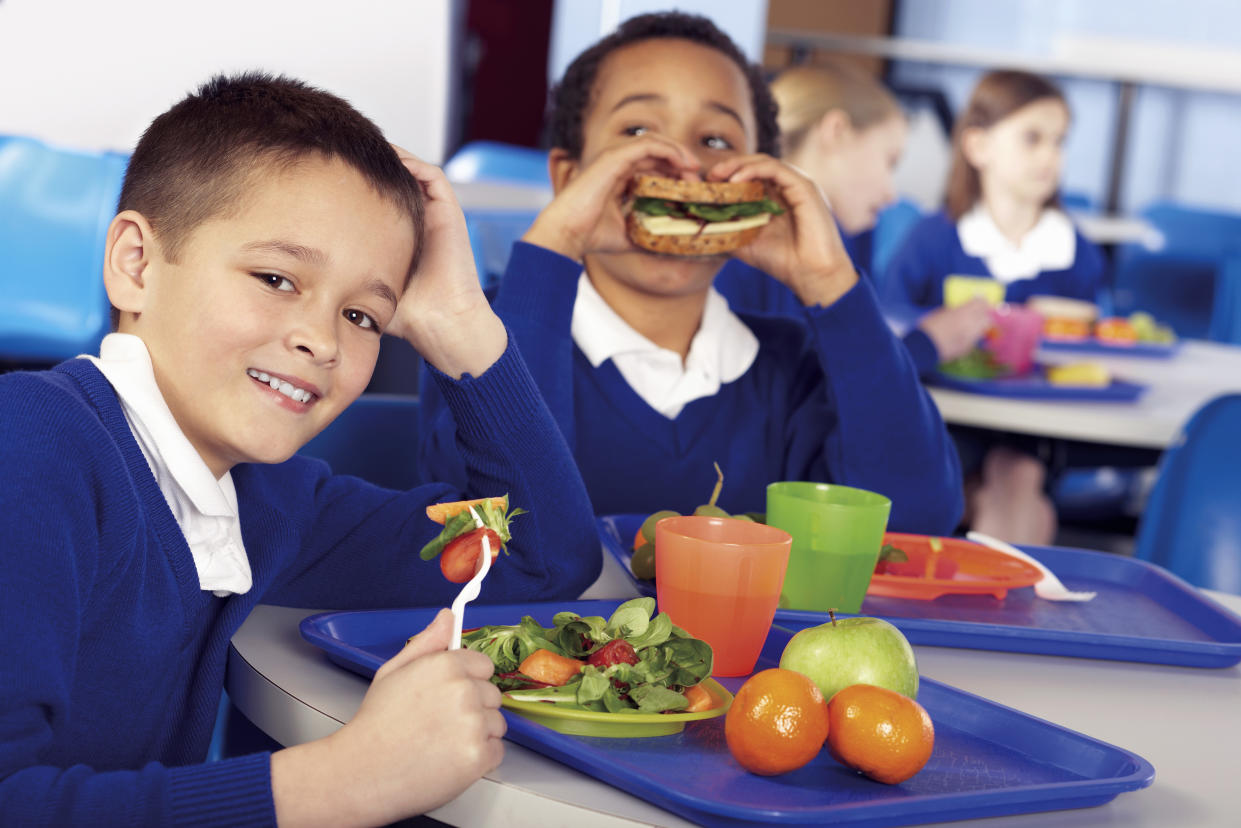More fruit and veg means better mental health for children, study finds

For most parents of small children, the struggle is real. Mealtimes regularly descend into negotiations over broccoli, heated debates over carrots, and sulking when pudding is a nice piece of fruit rather than chocolate ice cream – because getting children to eat their greens (and reds and oranges and purples) is like persuading a cat to eat lettuce.
However, new research has found that eating fruit and vegetables isn't just good for children's physical health, it's also excellent for mental health, too.

The study, published in BMJ Nutrition, Prevention & Health, found that children who ate five or more portions of fruit and vegetables a day had the highest scores for mental wellbeing, and the diet was also linked with better wellbeing among secondary school pupils in particular.
The new study was the first to investigate the association between how much fruit and vegetables UK schoolchildren eat, breakfast and lunch choices, and mental wellbeing.
Read more: Children's mental health is in crisis. Here's how you can help
Lead researcher Professor Ailsa Welch, from the University of East Anglia’s Norwich Medical School, said: “In terms of nutrition, we found that only around a quarter of secondary-school children and 28% of primary-school children reported eating the recommended five-a-day fruits and vegetables.
“Just under one in 10 children were not eating any fruits or vegetables.
“More than one in five secondary school children and one in 10 primary children didn’t eat breakfast. And more than one in 10 secondary school children didn’t eat lunch.”

Professor Welch said: “We know that poor mental wellbeing is a major issue for young people and is likely to have long-term negative consequences.
“While the links between nutrition and physical health are well understood, until now, not much has been known about whether nutrition plays a part in children’s emotional wellbeing. So, we set out to investigate the association between dietary choices and mental wellbeing among schoolchildren.”
“Nutrition represents an important public health target for strategies to address childhood mental wellbeing.”
Watch: Adorable toddler goes viral on TikTok for healthy eating
The researchers say that public health strategies and school policies should be developed to ensure that good quality nutrition is available to all children, before and during school.
They analysed data from almost 9,000 children in 50 schools across Norfolk. Participants self-reported their dietary choices and took part in mental wellbeing tests that covered cheerfulness, relaxation and having good interpersonal relationships.
The study looked at the association between nutritional factors and mental wellbeing, and took into account other factors that might have an impact – such as difficult childhood experiences and home situations.

Dr Richard Hayhoe, also from UEA’s Norwich Medical School, said they found that eating well was associated with better mental wellbeing in children.
“Among secondary school children in particular, there was a really strong link between eating a nutritious diet, packed with fruit and vegetables, and having better mental wellbeing.
Read more: How photography is helping youngsters' mental health in the wake of COVID
"We also found that the types of breakfast and lunch eaten by both primary and secondary school pupils were also significantly associated with wellbeing."
Children who ate a traditional breakfast fared better than those who only had a snack or drink. Worryingly, he added: "Secondary school children who drank energy drinks for breakfast had particularly low mental wellbeing scores – even lower than for those children consuming no breakfast at all.”

According to the data, in a class of 30 secondary school pupils, about 21 will have eaten a conventional breakfast, but at least four will have had nothing to eat or drink before starting classes in the morning.
At least three pupils will go into afternoon classes without any lunch.
“This is of concern, and likely to affect not only academic performance at school but also physical growth and development," said Dr Hayhoe.
“Another interesting thing that we found was that nutrition had as much or more of an impact on wellbeing as factors such as witnessing regular arguing or violence at home,” said Dr Hayhoe.
Watch: 5 healthy breakfast foods that have more sugar than a glazed donut


